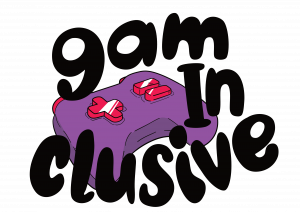

The variety in people’s demographics, beliefs, experiences, and preferences (e.g., gender, ethnicity, race, religion, socio-economic situation, sexual orientation) contributes to improving many aspects of our society. The benefits of this diversity of representations, models, and heuristics include more efficient problem-solving approaches, accurate forecasts, and creative ideas; broader and deeper evaluations; and better discerning about the facts; while outperforming homogeneous teams in several situations. Despite the advantages, inclusive practices that recognize and value personal differences to the detriment of inequalities and discrimination are still an ongoing public need.
Education can and must play a significant role in tackling these systemic issues by empowering individuals with the needed knowledge, skills, and attitudes to reflect and change their own actions. Equity, Diversity, and Inclusion (EDI) education integrates both prevention and response to discrimination incidents through the mitigation of implicit biases, which raises awareness of behaviors that might have inequitable effects and emphasizes policies to investigate prejudice.
GamInclusive proposes a framework to guide professionals and enthusiasts in designing gameful EDI educational approaches that promote cognitive, behavioral, and attitudinal learning to mitigate implicit bias and empower individuals in reflecting, exercising, and upholding each others’ rights, by:
- Integrating theories, design methodologies, and existing outcomes of gameful design and EDI educational approaches through a systematic review of the literature and applications to consolidate the union of these topics;
- Quantitative and qualitatively analyzing empirical results of a gameful EDI educational system within University settings by designing, developing, and evaluating EDI instructional materials, interactive prototypes, and a gameful web application;
- Defining a framework to design gameful EDI educational strategies that cognitively raises awareness about social issues and engages individuals with behavioral and attitudinal changes, based on theoretical and empirical evidence.
Given the priority of EDI education on both European and global scales, and the gameful approaches potential to promote psychological and behavioral change, GamInclusive will make a novel breakthrough by integrating both gameful design and EDI education research fields on theoretical, empirical, and practical levels. GamInclusive innovative aspects include:
- Bridging computer science and social psychology methodologies to understand and address discrimination effects through and in EDI education and gameful design processes (e.g., implicit and algorithm biases);
- Creating an open-access online gameful EDI educational application to raise awareness about inequality issues and engage individuals to social change through cognitive, behavioral, and attitudinal learning;
- Investigating different gameful design approaches based on individuals’ demographics and preferences, and the cognitive, behavioral, and attitudinal learning outcomes in experimental settings;
- Disseminating the empirical results, and defining the first framework to guide academic and non-academic audiences in designing gameful EDI educational strategies, based on theoretical and empirical evidence;
Gaminclusive is a two-year, EU-funded research project dedicated to the study of gameful approaches for equity, diversity, and inclusion education (MSCA-IF-2020, grant agreement 101029543). The project is led by Ana Carolina Tomé Klock and supervised by Prof. Juho Hamari, head of the Gamification Group at Tampere University, Finland.








